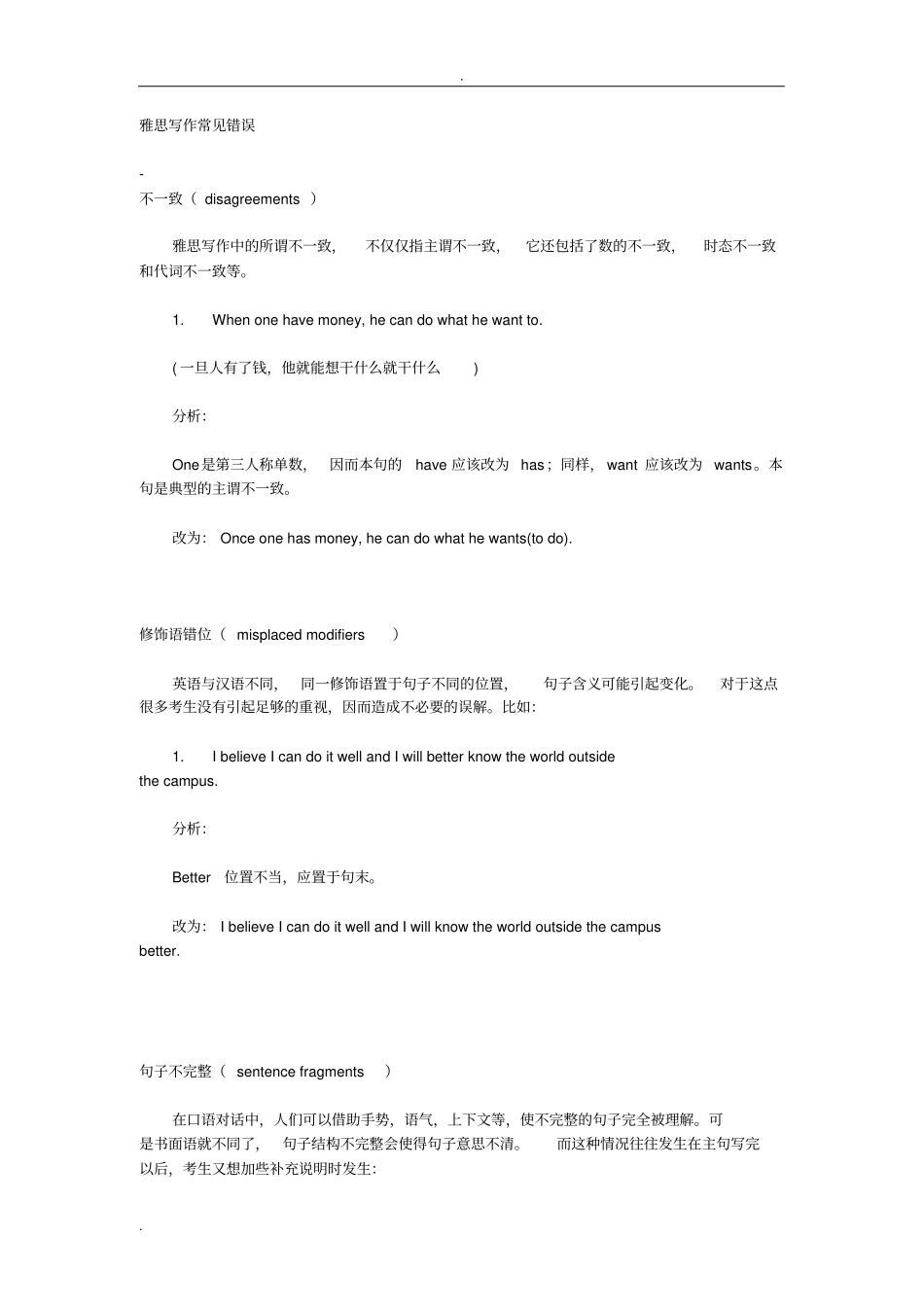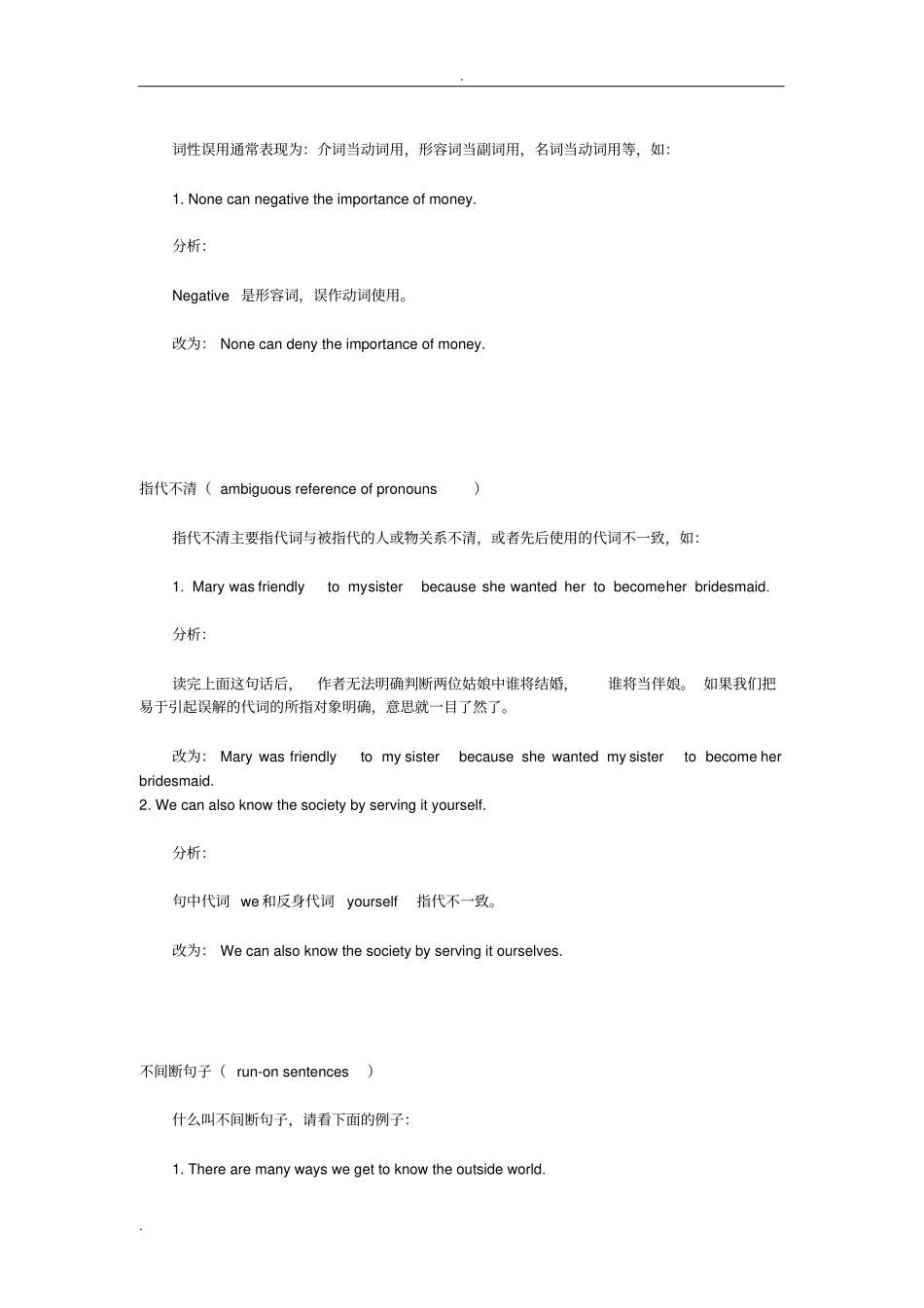. . 雅思写作常见错误- 不一致( disagreements )雅思写作中的所谓不一致,不仅仅指主谓不一致,它还包括了数的不一致,时态不一致和代词不一致等。1. When one have money, he can do what he want to. ( 一旦人有了钱,他就能想干什么就干什么) 分析:One是第三人称单数,因而本句的have 应该改为 has;同样, want 应该改为 wants。本句是典型的主谓不一致。改为: Once one has money, he can do what he wants(to do). 修饰语错位( misplaced modifiers)英语与汉语不同,同一修饰语置于句子不同的位置,句子含义可能引起变化。对于这点很多考生没有引起足够的重视,因而造成不必要的误解。比如:1. I believe I can do it well and I will better know the world outside the campus. 分析:Better位置不当,应置于句末。改为: I believe I can do it well and I will know the world outside the campus better. 句子不完整( sentence fragments)在口语对话中,人们可以借助手势,语气,上下文等,使不完整的句子完全被理解。可是书面语就不同了,句子结构不完整会使得句子意思不清。而这种情况往往发生在主句写完以后,考生又想加些补充说明时发生:. . 1.There are many ways to know the society. For example, by TV, radio, newspaper and so on. 分析:本句后半部分“For example, by TV, radio, newspaper and so on.”不是一个完整的句子,仅为一些不连贯的词语,不能成为一个句子。改为: There are many ways to know the society, for example, by TV, radio, newspaper. 悬垂修饰语( dangling modifiers)所谓悬垂修饰语是指句首的短语和后面的短语逻辑关系不清,如:1. At the age of ten, my grandfather died. 分析:这句话“ At the age of ten”只指出 10 岁时,但并没有指出谁10 岁时,按照一般的推理不可能是“my grandfather”,如果我们把这个悬垂修饰语改明确点,句子就不会引起别人误解了。改为: When I was ten, my grandfather died. 2. To do well in college, good grades are essential. 分析:句中不定式“ To do well in college”逻辑主语不清。改为: To do well in college, a student needs good grades. 词性误...


